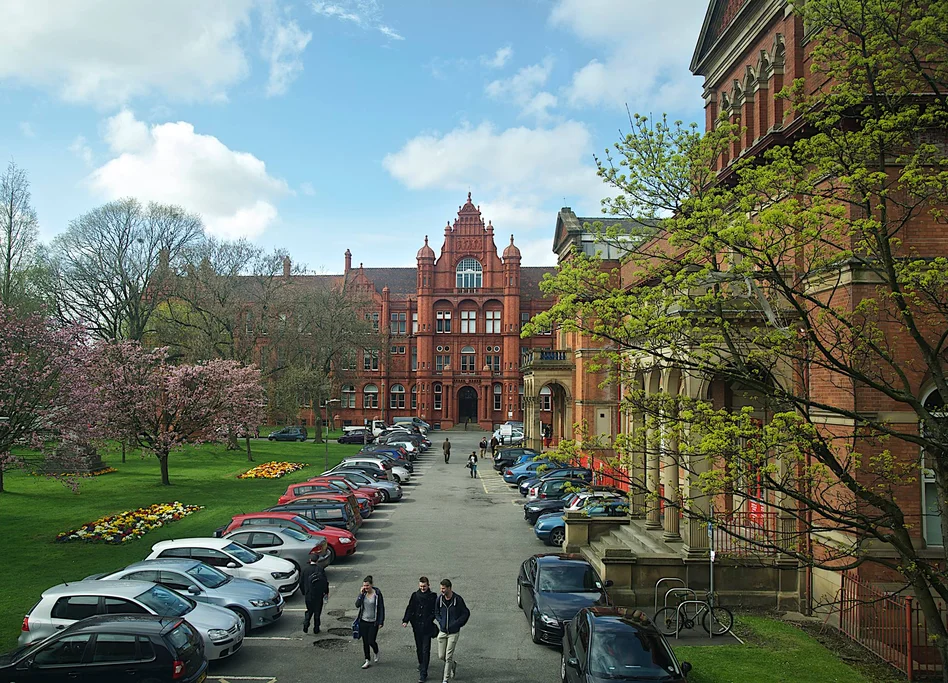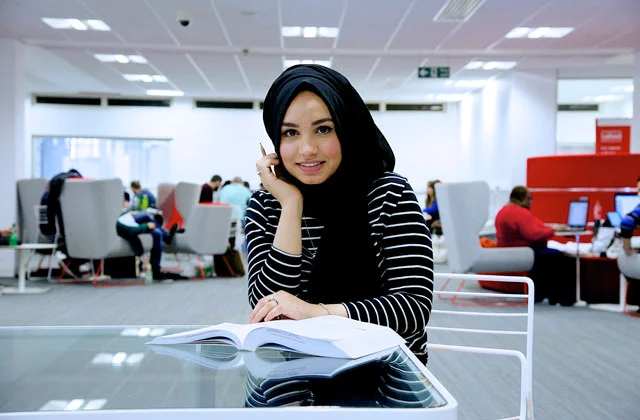Malaysia

University of Salford
United Kingdom
universities with courses in Business and Management
-
-
Malaysia
-
Malaysia
-
Malaysia
-
Malaysia
-
Malaysia
-
Malaysia
-
Malaysia
-
Malaysia
-
Kota Kinabalu, Malaysia
-
Malaysia
-
Malaysia
-
Malaysia
-
Subang Jaya, Malaysia
-
Kuala Lumpur, Malaysia
universities with courses in Computer Science and IT
-
Malaysia
-
Malaysia
-
Malaysia
-
Malaysia
-
Malaysia
-
Malaysia
-
Malaysia
-
Malaysia
-
Petaling Jaya, Malaysia
-
Kuala Lumpur, Malaysia
-
Malaysia
-
Kuala Lumpur, Malaysia
-
Malaysia
-
Malaysia
-
Subang Jaya, Malaysia
universities with courses in Engineering
-
Malaysia
-
Malaysia
-
Malaysia
-
Malaysia
-
Malaysia
-
Malaysia
-
Petaling Jaya, Malaysia
-
Kuala Lumpur, Malaysia
-
Malaysia
-
Malaysia
-
Subang Jaya, Malaysia
-
Malaysia
-
Malaysia
-
Malaysia
-
Malaysia
universities with courses in Hotel Management and Hospitality
-
Malaysia
-
Malaysia
-
Malaysia
-
Malaysia
-
Malaysia
-
Malaysia
-
Malaysia
-
Malaysia
-
Malaysia
-
Malaysia
-
Subang Jaya, Malaysia
-
Kuching, Malaysia
-
Malaysia
-
Malaysia
-
Malaysia
universities with courses in Mass Communication and Media
-
Malaysia
-
Malaysia
-
Malaysia
-
Malaysia
-
Malaysia
-
Malaysia
-
Malaysia
-
Malaysia
-
Malaysia
-
Malaysia
-
Kota Kinabalu, Malaysia
-
Malaysia
-
Malaysia
-
Malaysia
-
George Town, Malaysia
| 8 | Undergraduate programs | |
| 3 | Postgraduate programs |
Overview
| Institution type | Public |
| Year established | Data not available |
| Campus setting | Data not available |
| Student population | Data not available |
| foreign students | Data not available |
| Nationalities | Data not available |
About University of Salford
Our University’s past is rooted in the great Industrial Revolution of the 19th Century which changed the world. Salford’s thriving textile industry was fed by the Manchester Ship Canal built which was opened in 1894 and gave the city direct trade access to the sea. The Salford docks brought employment until the latter half of the 20th Century when the old industries went into decline. Demand for new industrial skills led to the formation of the Pendleton Mechanics Institute in 1850 and the Salford Working Men's College in 1858. At the end of the century they merged to create the Royal Technical Institute, Salford, which was opened by the Duke and Duchess of York (who later became King George V and Queen Mary) in 1896.
The statues of Queen Victoria and Prince Albert in front of the Salford Museum and Art Gallery commemorate the royal visit to Salford in 1851. Joule House in Acton Square was the home of prominent physicist James Prescott Joule who gave his name to the unit of energy, and the Working Class Museum is just around the corner. In 1921 the Institute was renamed the Royal Technical College, Salford. However, in 1958 it split into two separate organisations - The Royal College of Advanced Technology and the break-away Peel Park Technical College.
The break-away college became the Peel Park Technical Institute in 1961, the Salford College of Technology in 1970, and then the University College Salford in 1992.
On 10 February 1967 the Royal College of Advanced Technology became the University of Salford when Her Majesty the Queen handed over the Royal Charter.
The University College Salford and the University of Salford finally merged into a single institution in 1996 – exactly 100 years after the formation of the original Royal Technical Institute.
Our main library is named after Clifford Whitworth – the first Vice-Chancellor of Salford. The first Chancellor was Prince Philip, Duke of Edinburgh, who remained in the post until 1991.
Today the University has a successful global presence and a turnover of £189m. Our 7 schools, 20,000 students and 2,500 staff have all grown to serve the needs of industry, commerce and education.
The regeneration of Salford is creating new opportunities which bring our university firmly into the 21st Century. We have joined the BBC and ITV at the MediaCityUK development in Salford Quays and have ambitious plans to redevelop the existing campus over the next 20 years. With these strong foundations we look forward to even greater achievements in the future.
Admissions
Intakes
| IELTS | Data not available |
| TOEFL | Data not available |
For admission requirements and intakes for each individual course/programme please refer to course details.
Or, contact us for more informationUniversity of Salford courses and fees 11
University of Salford offers Undergraduate and Postgraduate courses and programs. The list of courses and their fees are listed below.
| Course name | Duration | Tuition fee |
|
Bsc (Hons) Accounting and Finance |
3 years |
Data not available |
|
Bsc (Hons) Accounting and Finance 3 years |
| Course name | Duration | Tuition fee |
|
BSc (Hons) Biochemistry |
3 years |
Data not available |
|
BSc (Hons) Biochemistry 3 years |
||
|
BSc (Hons) Biology |
3 years |
Data not available |
|
BSc (Hons) Biology 3 years |
| Course name | Duration | Tuition fee |
|
BSc (Hons) Business and Economics |
3 years |
Data not available |
|
BSc (Hons) Business and Economics 3 years |
||
|
BSc (Hons) International Business |
3 years |
Data not available |
|
BSc (Hons) International Business 3 years |
||
|
BSc (Hons) Marketing |
3 years |
Data not available |
|
BSc (Hons) Marketing 3 years |
||
|
MSc International Business |
1 year |
Data not available |
|
MSc International Business 1 year |
| Course name | Duration | Tuition fee |
|
BSc (Hons) Computer Science |
3 years |
Data not available |
|
BSc (Hons) Computer Science 3 years |
||
|
Creative Games MSc |
1 year |
Data not available |
|
Creative Games MSc 1 year |
| Course name | Duration | Tuition fee |
|
BA (Hons) Journalism (Broadcast) |
3 years |
Data not available |
|
BA (Hons) Journalism (Broadcast) 3 years |
| Course name | Duration | Tuition fee |
|
The Salford MBA |
1 year |
Data not available |
|
The Salford MBA 1 year |
Living cost
Data not available
Average living cost in United Kingdom
The amount is indicated taking into account the average cost of food, accommodation, etc in United Kingdom for 2025
| Food | Data not available |
| Accommodation | Data not available |
| Others | Data not available |
Accommodation
We’ve built a brand new student accommodation located in the centre of the main campus which overlooks Peel Park creating an exciting base for student living.
Peel Park Quarter houses a total of 1,367 bedrooms with en-suite facilities. Each apartment has its own kitchen and lounge space. Residents benefit from communal areas including a cinema room, gym, TV and games room, group study lounges and a launderette.
The additional students living onsite creates a 24-hour campus with shops, cafés and somewhere for the local community to visit.
In line with the University’s commitment to the environment, the accommodation is sustainable and energy-efficient with a target of achieving an ‘Excellent’ BREEAM rating.
Campus
Peel Park: Our main campus, Peel Park, is home to many lecture theatres, study spaces, facilities and amenities. Some of the key buildings based here include Maxwell, Chapman, Peel, Lady Hale, Clifford Whitworth Library and University House. The Students’ Union is also based here, alongside our Peel Park Quarter student accommodation and the leisure centre.
MediaCityUK: The place to be if you’re studying a media based degree. Our MediaCityUK campus opened in 2011 and sits amongst over 80 creative and digital organisations, including the BBC and ITV. The number 50 bus connects our main campus to MediaCityUK, meaning you’ll never be too far from student life over at our Peel Park campus.
Adelphi: The Adelphi campus is currently home to our Arts & Media School. The University is also investing £55m in the New Adelphi Building, and will provide exceptional facilities for the arts and media subject areas. The New Adelphi Building is set to open this year, ready for the new intake of students in September 2016.
Frederick Road: Our £22m Health & Social Care building, based on the Frederick Road campus, is home to practice clinics, hospital ward facilities and a human performance lab. The majority of Health Sciences and Nursing, Midwifery, Social Work & Social Sciences subjects are based here.
The university is only one and a half miles (2.5km) from Manchester city centre.
Travelling to the University:
By train
Salford Crescent station is located on the campus between Peel Park and Allerton. Direct services run to and from Manchester Airport, Manchester Piccadilly and Victoria, as well as Blackpool, Bolton, Buxton, Blackburn, Southport, Preston, Lancaster and Barrow-in-Furness. Inter-city services normally use Manchester Piccadilly which is about ten minutes train journey from Salford Crescent.
By air
Manchester International Airport is 15 miles from the University. There are regular, direct train services to and from Salford Crescent station and Manchester Piccadilly.
Student population
Data not available
Total population
| Undergraduate students | Data not available |
| Postgraduate students | Data not available |
| foreign students | Data not available |
 +60142521561
+60142521561








